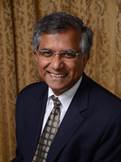VISN 4 MIRECC Newsflash
Spring 2019
RESEARCH SPOTLIGHT |
Personalizing Prize-Based Addiction Treatment
More than 100,000 Veterans are clinically diagnosed with stimulant or cannabis use disorders, for which there are currently no FDA-approved pharmacotherapies. Therefore, treatment is centered on behavioral interventions, one of our most effective of which is contingency management (CM), an approach in which patients win prizes like cash vouchers, snacks, or clothing items for negative drug screens. Over the past 25 years, evidence has been building that CM works. It’s now being used at 108 VA sites nationwide and has served over 4,400 Veterans. But the treatment can be costly, the long-term benefits may be limited, and individual response varies. If CM could be precisely targeted and tailored based on individual patient characteristics, could more Veterans reap greater benefits?
VISN 4 MIRECC Pittsburgh investigator Sarah E. Forster, Ph.D. is aiming to find out. Along with Steven Forman, M.D., Ph.D., also of the MIRECC Pittsburgh site, and Dominick DePhilippis, Ph.D. of the Philadelphia Center of Excellence for Substance Addiction Treatment and Education (CESATE), she recently published a systematic review [external] in the Journal of Substance Abuse Treatment looking at research on individual differences in CM treatment response. The authors examined 39 publications and found that while CM is generally linked to longer periods of abstinence and better retention than standard outpatient care, individual factors such as past treatment attempts and comorbid disorders can significantly impact response. Meanwhile, Dr. Forster is conducting her own original research on CM. Her CSR&D Career Development Award-funded clinical trial, Neurocognitive Factors in Substance Use Treatment Response: The Ways of Rewarding Abstinence Project (WRAP) is exploring how exactly CM works in the brain. Using EEG and cognitive-behavioral measures, she hopes to discover if there are measurable, individual predictors that could lead to the development of customizable CM, wherein parameters like the length of the program or the type, value and frequency of rewards might be adjusted. For instance, for Veterans who struggle with future-oriented thinking, tangible, immediate prizes may be more effective than traditional paper vouchers, which are more abstract and require some planning.
Dr. Forster’s work supports the VISN 4 MIRECC’s focus on Precision Mental Health Care by employing measurement-based strategies and predictive analytics to advance implementation of contingency management within VA.
| |
Positive consequences of drug abstinence can be uncertain and often take time to manifest. CM brings abstinence-contingent reward into focus by offering reliable reward opportunities in the near future. By learning more about how CM bootstraps future-oriented thinking and how to better support this process in individual patients, we hope to help even more Veterans benefit from this intervention.” —SARAH E. FORSTER, PH.D. |
STAFF ANNOUNCEMENT |
 |
Vishwajit Nimgaonkar, M.D., Ph.D., Co-Associate Director for Research at the VISN 4 MIRECC, has been appointed Associate Chief of Staff for Behavioral Health at the VA Pittsburgh Healthcare System. Dr. Nimgaonkar, who directs the Program for Genetics and Psychoses at the University of Pittsburgh, conducts research in the U.S., India, and Egypt on the causation and treatment of severe psychiatric illnesses. |
PUBLISHING HIGHLIGHTS |
Wright JH, Owen JJ, Richards D, Eells TD, Richardson T, Brown GK, Barrett M, Rasku MA, Polser G, Thase ME. Computer-Assisted Cognitive Behavior Therapy for Depression: A Systematic Review and Meta-Analysis. Journal of Clinical Psychiatry. March 2019. PMID: 30900849 [external]
Chakravorty S, Morales KH, Arnedt JT, Perlis ML, Oslin DW, Findley JC, Kranzler HR. Cognitive Behavioral Therapy for Insomnia in Alcohol-Dependent Veterans: A Randomized, Controlled Pilot Study. Alcoholism: Clinical & Experimental Research. March 2019. PMID: 30912860 [external]
Kranzler HR, Zhou H, Kember RL, Vickers Smith R, Justice AC, Damrauer S, Tsao PS, Klarin D, Baras A, Reid J, Overton J, Rader DJ, Cheng Z, Tate JP, Becker WC, Concato J, Xu K, Polimanti R, Zhao H, Gelernter J. Genome-Wide Association Study of Alcohol Consumption and Use Disorder in 274,424 Individuals from Multiple Populations. Nature Communications. April 2019. PMID: 30940813 [external]
Archive



















